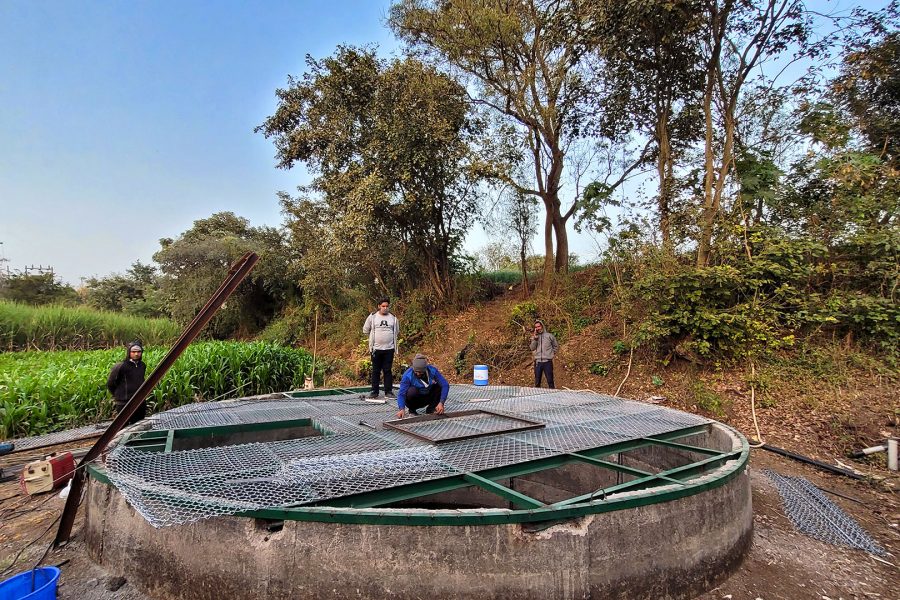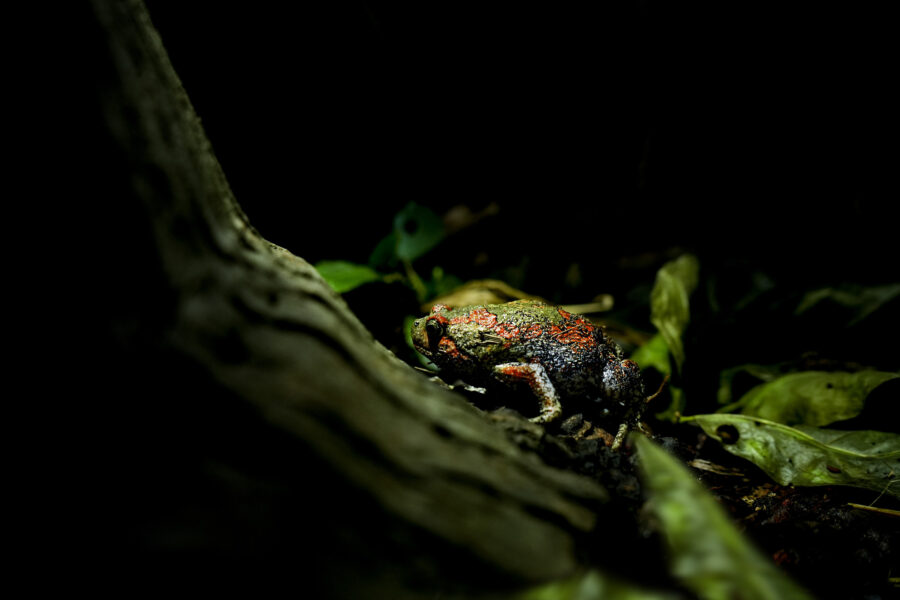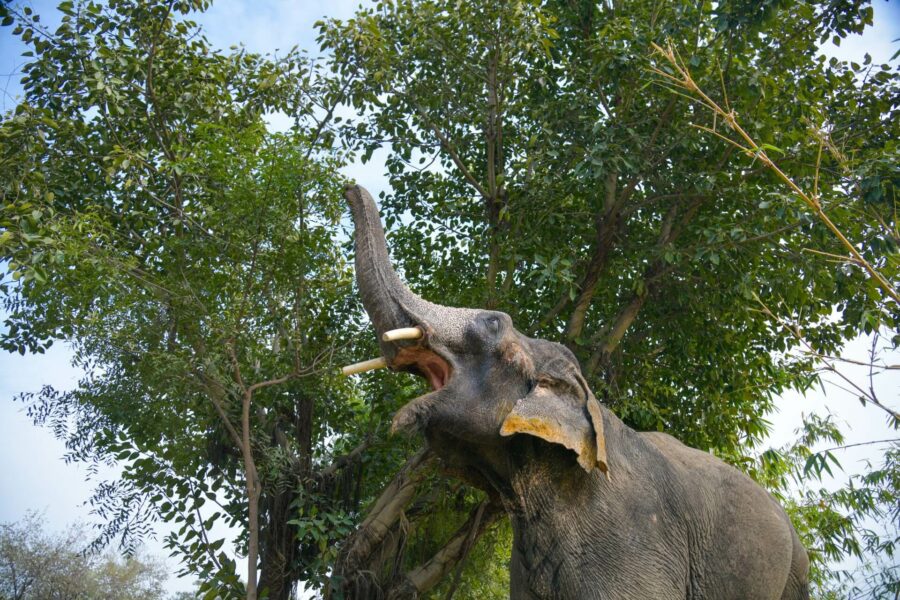As the blistering heat engulfs regions of Northern India, temperature records break the mercury scale, shooting as high as 45.6 degrees in Mathura. Humans and animals are victims of the scorching sun and the myriad challenges that come with it. The situation is no different for the gentle giants at our Elephant Conservation and Care Centre (ECCC) and the Elephant Hospital Campus (EHC). While the elephants employ natural methods like indulging in mud baths, dust baths and flapping their big ears to regulate their body temperature, our caregivers and veterinarians initiate a summer management plan to help them remain cool.
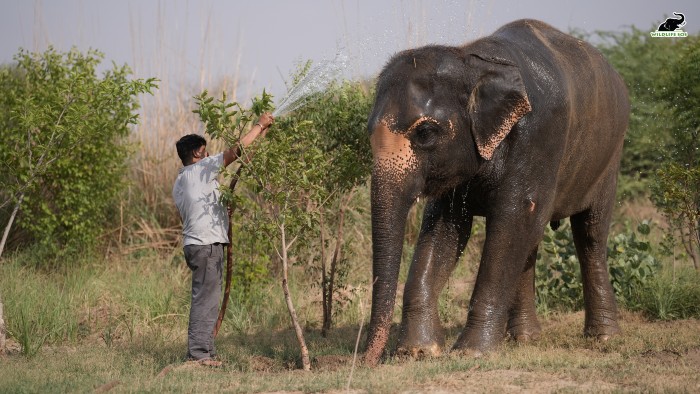
Heat stress and dehydration target elephants during the warmer months. To prevent these from happening, let’s look at the array of efforts undertaken by our caregivers and veterinarians at ECCC and EHC for the well-being of our majestic elephants.
Sprinklers
Sprinkler systems are an integral tool to keep the land cool for the elephants to traverse. Additionally, they provide relief to elephants when they stand under the sprinkler shower. Enclosures at ECCC are equipped with sprinklers that are operated at least thrice daily. In the evenings, our caregivers make sure to turn them on while the elephants are out on their daily walks so that they have a soft, unheated ground to return to after their stroll.
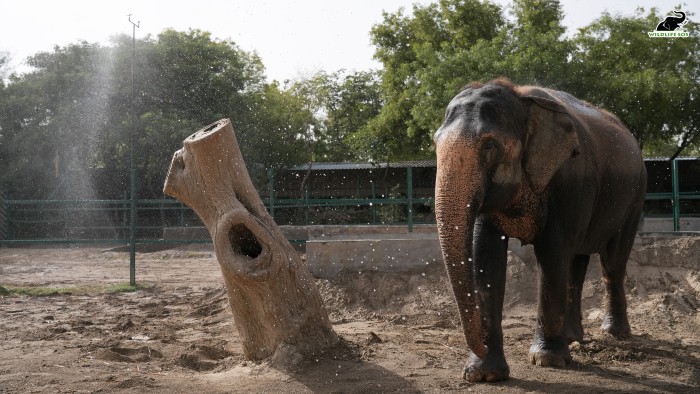
Ground moistened by these sprinklers, and by the splashes of water from the pool and troughs, provide elephants with a great opportunity — mud baths! Damp dust creates mud that the elephants are eager to apply on themselves. Not only does this give their bodies a needed respite, it acts as a protective layer against the sun and insects.

Ponds
The elephants indulge in a jolly time in the ponds situated within their enclosures. Here, they immerse themselves for hours at a stretch, and even squirt a trunkful of water! Along with gaining respite from the harsh sun, the buoyancy of water provides great relief to their limb joints and muscles.
To maintain hygiene, caregivers at the centres make sure to refill each pond with fresh water every alternative day in order to keep out the dirt and bacteria that may have accumulated. While the pachyderms enjoy pooltime, their caregivers supplement their refreshing experience with juicy and delicious treats like watermelons and sugarcane stalks!
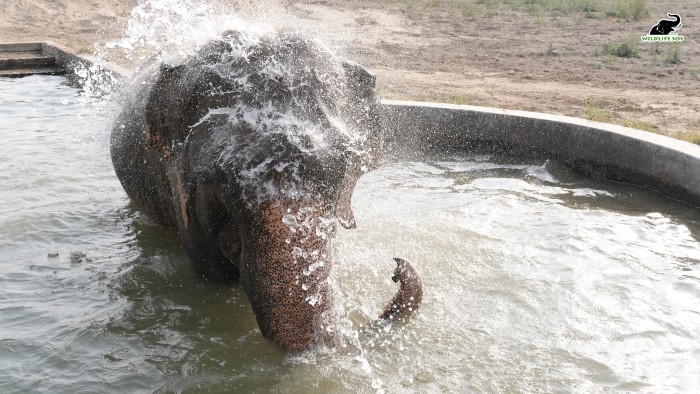
Hydrating Nutrition
As the seasons change, the nutrition provided to the elephants are also modified. Seasonal food rich in water content, such as watermelons, cucumbers, bottle gourds, pumpkins, beetroots and bananas, are incorporated in their diet. For elephants that experience colic sensitivity, curd is included as it aids in cooling the stomach. Chari (sorghum) is summer’s green fodder, and is stuffed within the pachyderms’ food-based enrichments.
In the hot weather, elephants may experience a dip in the electrolyte count, resulting in weakness. To combat this, a good amount of Oral Rehydration Salts (ORS) is mixed into their porridge to replenish their bodies. The water troughs are also strategically placed under shaded areas so they can hydrate themselves comfortably.
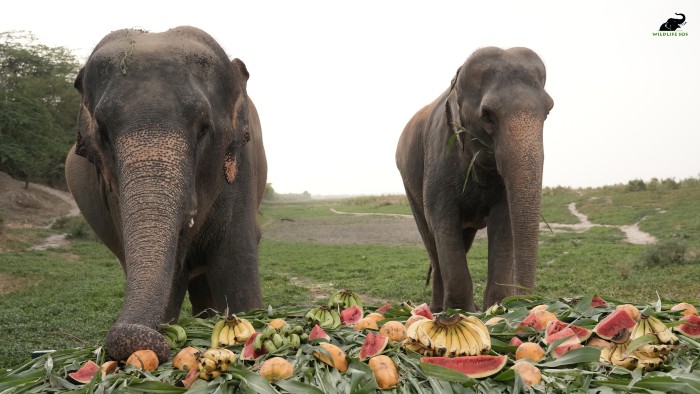
Daily Walks
The time for routine walks with pachyderms has been adjusted according to the harsh temperatures of the day. The elephants commence their routine morning stroll early at 6 am and engage in this three-hour-long activity before the day gets too hot. They proceed for their evening walk at 4 o’clock, an hour later than usual, to escape the glaring sun and saunter when the weather is pleasant.
Shaded Enrichments
Our elephants take delight in lounging under the shade in their enclosure. They can often be seen spraying water on themselves from the water tanks placed there to cool off. Enrichments like cage feeders, hanging feeders and drum feeders are placed in areas that do not receive direct sunlight as well. Their mindful placement allows elephants to remain engaged as they extract the tempting treats from inside them.
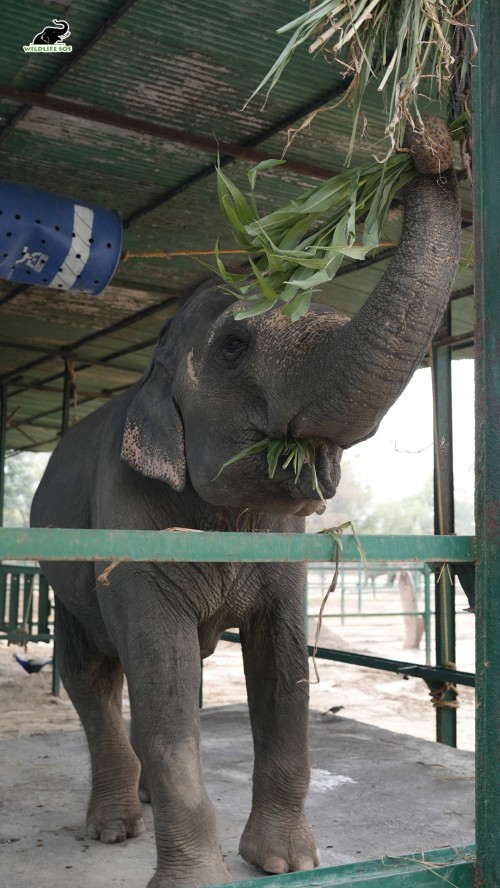
Summer Support for Caregivers & Medical Team!
Our dedicated caregivers and veterinarians brave the sun’s fury while fulfilling their tasks necessary for the well-being of our elephants. When venturing out in the fields, our vets and caregivers make sure to wear caps to shield themselves during peak hours. They also try to start work very early to avoid intense heat. Keeping hydrated is paramount this season, which is why the team frequently drinks water infused with ORS or glucose in order to replenish electrolytes lost in the heat. The cooling system in their dining area provides a much-needed break from soaring outdoor temperatures when our field team sits for their meals. By keeping their own health in check, our caregiving staff can be perfectly prepared to provide the best care for our elephants.
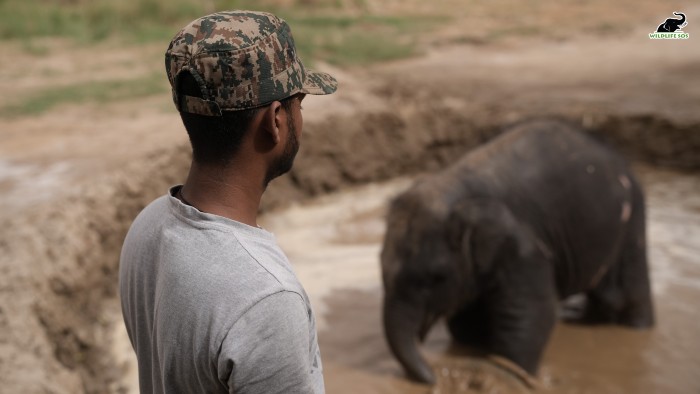
For more insights on the activities at our rescue and rehabilitation centres, subscribe to our newsletter.


